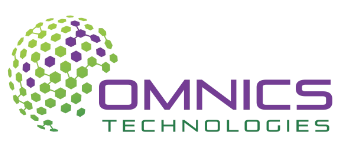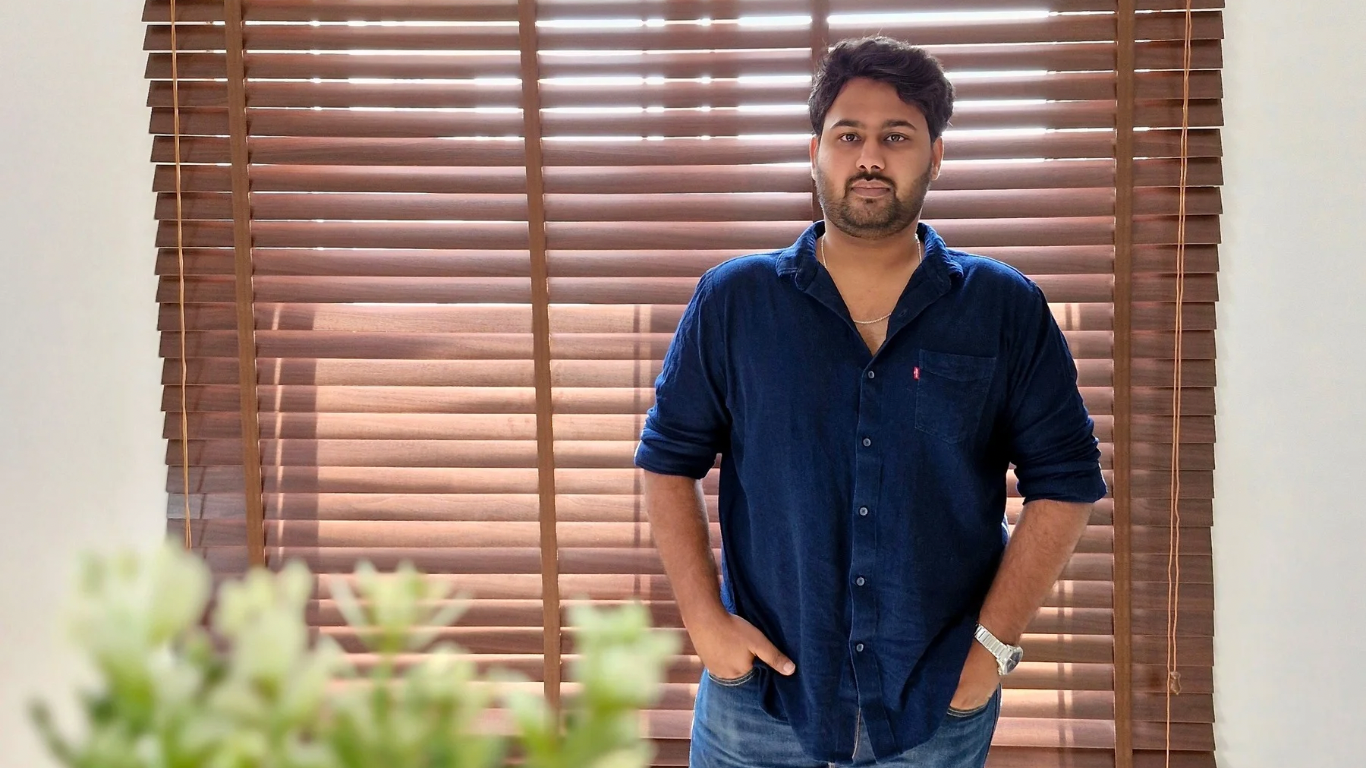Pioneering the Future: Anurag Vasi, A Manager’s Journey and Vision at Omnics
We are delighted to share an insightful interview with one of our esteemed managers at Omnics, Anurag Vasi, shedding light on his remarkable journey from software developer to key leader in our organization. Let’s uncover his vision and the path he traversed towards shaping the future of technology at Omnics.
Anurag, what inspired you to pursue a career in technology? Can you share a bit about your background and how you initially got into software development?
My journey into software development began in the 12th standard during my preparation for EAMCET and IIT. Even then, I had a budding interest in the burgeoning field of software and the new social media platforms that were emerging. When it came time to choose my field of study in engineering, I was very specific: it had to be computer science. I applied exclusively for computer science programs, driven by my fascination with technology.
In engineering, I started with the basics, and my interest only grew stronger as I typed code and saw the incredible results displayed on the screen. The ability to create and innovate with just a computer at my hands was exhilarating. Additionally, I was an avid reader of tech news, always keeping up with the latest advancements and trends, which fueled my passion further.
From my engineering days, I was deeply immersed in coding and software development. It was during this time that I decided to pursue a career in software development. It became more than just a field of study—it became a passion.
What drew you to join this organization, and what was your initial role here?
I was referred to this organization by Vishwanath, a friend of mine, who mentioned that his friend Ravi, the co-founder, was looking for a React Native developer. About a year prior, I had transitioned from React to React Native to meet the needs of a project at my previous company. I was particularly intrigued by a project based in Germany. I’ve always been more passionate about working in startups rather than large MNCs. In large corporations, individual contributions can often go unnoticed, making it difficult to take ownership of the final product. In contrast, startups offer the chance to make a significant impact and be recognized for your efforts.
Even though the company was still in its early stages, I decided to take the risk. I was attracted to the idea of growing with the company and contributing to its success from the ground up. Vishwanath’s recommendation carried a lot of weight, and after discussing the project with Ravi, I was convinced of their seriousness and commitment to the project’s long-term vision.
My initial role at the company was as a React Native developer. The main reasons I decided to join were the opportunity to grow alongside the company and the trust I had in the founders’ vision and dedication.
How was your relationship with the higher management and team members, and how has it evolved over time?
Reflecting on my journey, my relationship with higher management has always been exceptionally positive, resembling a close friendship. They’ve granted me the freedom to explore my ideas and consistently valued my input on significant decisions, fostering a collaborative and enjoyable working environment.
When our higher management is in India, our interactions extend beyond the workplace. We often socialize, party, and spend quality time together, which has only strengthened our bond. Their approachability and genuine friendliness have made hierarchy feel nonexistent.
The team I work with is exceptional, each member bringing unique talents and perspectives. Over time, this relationship has only grown stronger, creating a supportive and engaging work atmosphere that I truly value.
How did you prepare for the transition from developer to manager? What do you prefer: management or development?
The transition from developer to manager was challenging at first. As a developer, I was comfortable facing and solving complex coding problems on my own. However, stepping into a managerial role required a completely different set of skills. Instead of handling tasks myself, I had to guide others, consider various scenarios, and ensure that the team understood how to approach their tasks without being harsh.
Initially, it was difficult, and I faced several challenges. It took me about 3-4 months to adapt to this new role. During this time, I learned how to manage effectively and support my team. Over time, I grew to enjoy management.
Before stepping into management, I preferred development because I didn’t fully understand the nuances of the managerial role. I used to think management was simply about assigning tasks to team members. Now I realize it involves much more: discussing requirements with clients, providing accurate inputs, ensuring timely delivery of tasks, and most importantly, creating a positive work environment.
Now, I find management more fulfilling and challenging, and I enjoy it more than development.
What are the biggest challenges you have faced in your journey? How did you overcome them?
One of the initial challenges I faced was working in an MNC where I was primarily assigned support projects, which involved addressing tickets rather than engaging in development work. This wasn’t aligned with my interests, so I took the initiative to learn React and Node.js on my own. This period of self-learning was challenging but essential for my growth.
After transitioning to a development role at another company, I encountered numerous technical challenges and worked on several complex projects. Overcoming these required extensive research, continuous learning, and problem-solving. These experiences significantly enhanced my skills.
However, the most substantial challenge was transitioning from a developer to a manager. As a developer, I was used to solving problems independently and quickly. In a managerial role, I had to adjust to the fact that everyone works at their own pace and has different strengths. Some team members may work quickly, while others may be more methodical but strong in logic.
The key challenge was learning to manage and harmonize these differences effectively. It’s important not to favor fast workers over slower ones. Instead, focus on helping those who work at a slower pace improve while recognizing their unique strengths.
My approach to management involves being patient and understanding. I give team members 1-2 chances to improve on their own, but if there’s no progress, I might adopt a stricter approach. It’s crucial to be able to gauge the character of each employee and tailor your management style accordingly. I believe in being friendly yet firm, motivating employees constructively rather than being harsh.
What are your future career aspirations? How do you see the future of our company and what role do you envision playing in it?
I don’t aim to settle into a specific position or designation. Instead, my aspiration is to play a highly influential role in driving growth and achieving tangible results from my efforts. I want to be in a decision-making position where I can effect meaningful change and contribute significantly to the success of the organization. My goal is to be part of a success story.
I can confidently speak about the future of Omnics because I have been with the company since its very inception, even before we had decided on a name. From those early days of uncertainty to now, where we’ve grown to a team of 25, the progress has been impressive. In just 2-3 years, we’ve shown remarkable growth, and I have complete trust in our higher management—Florian, Franzi, and Ravi.
I believe Omnics will continue to achieve great success and reach new heights in the industry. I envision the company distinguishing itself from others by focusing on our employees’ development and motivation. By understanding each employee’s working pace and addressing their needs, we can foster an environment where everyone thrives.
As for my role, I see myself contributing to this vision by driving strategic initiatives and supporting the team in their growth. I aim to help shape Omnics into a unique and innovative organization that not only excels in its field but also invests in its people, ensuring a bright and successful future.
What do you want to say to the freshers and young generation?
For freshers who are looking for jobs, it’s crucial to focus on improving your basic skills. Our country needs more skilled workers, but there is often a gap in the necessary practical skills. Freshers should concentrate on mastering the basics and gaining practical knowledge. It’s not enough to have bookish knowledge; understanding real-life scenarios and how to apply your skills in practical situations is essential. By building a strong foundation and focusing on practical applications, you can better prepare yourself for the challenges and opportunities in the job market.
What keeps you motivated and what are your interests outside of work?
I love to travel. Exploring new places and cultures brings a fresh perspective and recharges my creativity. I believe it is only when we take chances that our lives improve. The initial and most difficult risk we need to take is to become honest. This philosophy keeps me motivated to take on new challenges, both in my professional and personal life.
Anurag’s journey serves as a beacon of inspiration for emerging technologists and future leaders, urging them to embark on their own paths of innovation and growth. At Omnics, our commitment lies in fostering talent, nurturing growth, and cultivating a team united by a shared passion for innovation and excellence.


 Photo of Desola Lanre-Ologun in Unsplash
Photo of Desola Lanre-Ologun in Unsplash